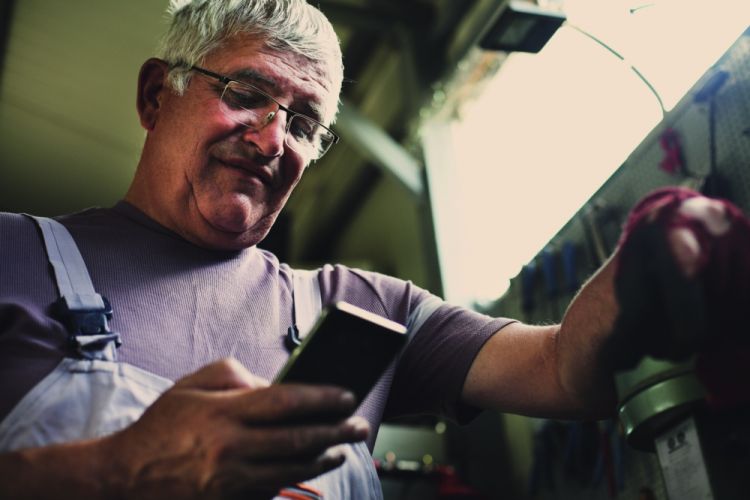Age and Covid-19

The coronavirus may have an impact on older workers well into the future. Many older workers are taking early retirement or leaving the workplace because they don’t trust their employer to keep them safe. For those without emergency savings this can be financially devastating as they have far fewer working years left to pay off debts and rebuild savings.
For younger workers, who are more likely to work in precarious contracts, the loss of work can be financially devastating. Younger workers are more likely to work in the sectors most impacted by the coronavirus lockdown. These include the hospitality, retail and leisure sectors. For those who are entering the labour market, this could be the most difficult time to do so. Additionally, it can be more difficult to enter the workplace, or return to it if you lack experience or have been away from the labour market for a long time.
Issues facing workers because of their age
- Older people who are more vulnerable to Covid-19 are more likely to have to isolate for longer. This can increase isolation and loneliness amongst older people, who may also be more digitally excluded.
- The impact on mental health of living and working through a pandemic will be massive. For those who have health concerns, who live alone and those who have felt isolated. This has meant that older people who are less likely to use online methods of communicating face increased risk of isolation, and younger people who regularly see others at school, college or in the workplace don’t have the same chance to socialise.
- Unions have reported that young workers have been disproportionally affected as those who are apprentices were made redundant before the furlough scheme was announced from UK Govt.
- UK Govt hasn't gone far enough to protect apprentices. Many smaller firms have been able to pay their wages and young workers who could potentially be furloughed may not realise that this scheme applies to them due to employer pressure to work.
- Reliance on technology to access information, goods and services has never been higher. But both older and younger workers can be digitally excluded because of a lack of knowledge, equipment or money to pay for broadband or technology.
- Children have been presenting to hospital later with other, non-Covid health issues. Dr’s are concerned that by presenting later and therefore sicker they require more interventions.
- For children living in a home where this is domestic abuse taking place, school is no longer a solace away from this abuse. This places them further at risk of harm and of adverse childhood experiences.
- Workers on precarious contracts, particularly younger workers, may still choose to go to work even when they don’t feel safe. They may feel they have no choice other than to go to work in order to secure more work in the future.
- Workers have reported problems with receiving proper sickness pay when they need to self-isolate. Many workplaces are only paying Statutory Sick Pay (SSP) when workers are self-isolating. This is £95.85 a week and for most people, is too low to live on. This means that workers are placed in a difficult position where they must decide if they self-isolate as they should do but accept a wage they cannot live on or go into work but risk spreading the virus.
- Even when restrictions are lifted, many young people are likely to remain unemployed because they haven’t had an opportunity to develop their workplace skills over the last 6 months.
- Younger people have been affected by school closures, exam cancellations and uncertainty over their future. This may mean that accessing work in the future is more difficult.
- Many unions have removed restrictions around membership joining and are providing legal support from the day of joining. Join a union today.
Your rights as a worker in relation to your age

Section 44 of the Employment Rights Act 1996 provides workers with the right to withdraw from and refuse to return to a workplace that is unsafe.
There have been several examples of union branches walking off the job citing this law.
If you feel your workplace is unsafe due to Covid-19, you should contact your union's legal team for urgent advice.
Read more about your rights if you refuse to work because of coronavirus safety concerns
The Equality Act 2010 is the key piece of legislation dealing with workplace discrimination. It protects workers from discrimination based on age, sex, disability, race, religion or belief, sexual orientation, marriage or civil partnership status, pregnancy or maternity, or gender reassignment.
Union representatives have a key role to play in:
- promoting equal rights for all members. Reps can negotiate with employers for policies and procedures that advance equality and do not lead to one group being disproportionately disadvantaged
- creating a supportive atmosphere at work and in the union in which all members feel that they can participate and that their opinions are valued
- challenging instances of harassment and discrimination and ensuring complaints are dealt with effectively
- acting as a role model in treating everyone fairly.
For more information on how the Equality Act can protect workers visit our Covid-19 and reasonable adjustments guide for reps
What your employer should do
Download our Older Workers Toolkit to find out how unions and employers can help older workers.
- Your employer should still be adhering to the law on reasonable adjustments. There is a mistaken belief that ‘normal business’ has been suspended as far as the Equality Act goes. Any reasonable adjustments you have already negotiated should still be in place.
- People at increased risk, in discussion with their line manager, may require an adjustment to allow them to change their working arrangements or to work from home. Line managers ensure that workers have the right support and are safe at work.
- If you are working from home, your employer still must protect you. This means ensuring that you have a safe environment to work in, and that you have access to the correct equipment to allow you to do your job. Your employer should support you to continue doing your job, even if working from home means you do it in a different way.
- Employers should still be undertaking risk assessments in consultation with unions for home working. Employers should consider accidents, injuries, workers’ mental health and stress levels and the risk of violence, alongside other factors which allow workers to work comfortably and safely. Employers should provide equipment to keep workers comfortable at work. This might include equipment to support good posture or to manage temperatures. Read more about how to stay safe when working from home and how health and safety reps can help homeworkers.
- Employers should listen to older and younger within their workplace. Allowing workers a safe space to organise, network and discuss can be the first step, but employers need to make sure that workers are listened to when they raise concerns.
- While there are health and safety risks related to homeworking there are also many benefits. We hope in future bosses will be more open to offering flexibility. This flexibility can be particularly advantageous to older workers who need to manage their work in a different way. It is also helpful to people with caring responsibilities. Offering flexible working allows companies to recruit from a larger group of people. There are also benefits to the environment as workers spend less time commuting.
- Your employer has a legal obligation to protect your health and safety at work. Before you go to work, your employer should do a risk assessment that highlights the risks of Covid-19. This assessment should include questions on who you live with, whether you or members of your household are vulnerable, and how you intend to get to work if you are unable to work from home. The risk assessment should also include what adjustments you need to be able to do your job. Read how to check if your employer is doing everything it should to keep you safe.
- If your employer has done everything they can to eliminate all other risks, and you still are required to work, then your employer has a duty to provide you with the appropriate personal protective equipment (PPE) to allow you to do your job. This isn’t only the case in medical workplaces, but in all workplaces. It includes care homes, shops, warehouses and transport vehicles. Read more information on PPE and the workplace.
- If you have childcare or other caring responsibilities such as looking after grandchildren, you should discuss this with your employer. They should consider your needs and make reasonable adjustments.

- This pandemic is a testing and difficult time for many of us. Mental health and your wellbeing is extremely important and your employer should support you during this crisis. Follow our bitesize Coping with Covid learning sessions which will give you the tools and techniques to help you look after yourself.
- If you are facing a change in your housing situation, your employer can help you and provide adjustments during this time.
What we're asking Government to do to protect workers in relation to age
- We're concerned that some employers are flouting the law. We're working with the Welsh Government to protect workers and their income, jobs and health and access to services.
- This action must be part of a broader strategy to protect the health and safety of people at work. It must include stronger government guidance (underpinned by regulation) on the safety measures all employers must consider now. It must also include new powers (via a tripartite network, involving employers, unions and the HSE) for government to compel employers who do not follow these steps to close.
Read about how to negotiate with employers and to protect the workforce in our coronavirus reps guide
Tell us your experience
Are you worried about not being able to stay safe from coronavirus at your workplace? Please tell us your experiences using our whistle blowing form.
We will anonymously share the information about your health and safety concern with Welsh Government and the Health & Safety Executive (HSE). If you tell us it’s OK to pass on your details, we will also report the issue to your trade union for you.
Fill in our health and safety whistleblowing form
Join a union
Unions help workers get together, stop people being treated unfairly and get a better deal from their employers.
They’re there when times are tough – providing free legal advice if you need it. There are lots of discounts and offers for union members too. And every year they help more than 200,000 people get the training and learning opportunities they need to move on in their career.
Isn’t it time you joined a union?

